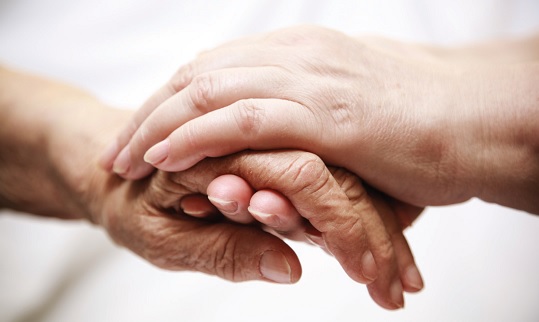 Advent 2
Advent 2
Isaiah 40:1-11
2 Peter 3:8-15a
Mark 1:1-8
A Series of Advent Devotions from the presiding bishops of the Evangelical Lutheran Church in America, the Evangelical Lutheran Church in Canada, The Anglican Church of Canada, and The Episcopal Church
+++
God of holy patience, help us to offer a compassionate witness
against the fear and despair of our time.
Amen.
+++
by Katharine Jefferts Schori, Presiding Bishop of the Episcopal Church
The world seems like a miserable and tragic mess this year — there is war all over the Middle East and strife in Eastern Europe; western nations are increasingly divided between abject poverty and obscene wealth; Ebola is spreading; our globe is warming, seas rising, and species disappearing. Woe, woe, woe, everywhere we turn.
In the face of that sort of invitation to despair, Isaiah cries, “Be of good cheer. Even though you know the perfidy of humankind, God is working his ancient promises out. The path to the Reign of God is emerging even now, even in the midst of dark despair.” (Isaiah’s use of “comfort” implies “be strong.”)
Peter tells a similarly despairing community to be patient and to be at peace. Whence cometh patience? Whence cometh my help? Patience is above all the ability to abide, even when it hurts like hell, knowing that God’s road keeps rolling out ahead of us, leading onward to healing, wholeness, and the holy peace that passes all understanding.
Patience comes from a root that means to suffer or endure. It can be painful to wait, especially if we are eager for the birth of a child, anxious to have an onerous task completed, or a wound healed. The deeper origin of the word lies in a root that means to hurt, injure, blame, revile, or damage — the word fiend comes from the same root. In some deep sense, patience is the virtue needed in the face of the fiendish and whatever is hostile to life.
As Peter puts it, we wait for a new heaven and a new earth, in spite of all the forces that stand in the way. We wait patiently, confident that God is working his purposes out. Yet patience does not mean total passivity. Perhaps surprisingly, passive originally meant that one was capable of suffering; today it often implies that one is unfeeling and unresponsive.
To live as Jesus did is to embrace the world’s suffering — in as full a way as possible — and yet to endure, knowing that God is still in our midst, and in the heart of the pain. Patience in this season of waiting is not just about putting up with delay, but having deep compassion for all who wait for justice, healing, and peace. It is about solidarity, and suffering with (which is the literal meaning of compassion).
John the Baptizer is announcing the presence of compassion in the flesh — and reminding his hearers that God’s road builder toward that future is coming. Not only will a fellow sufferer stand with you, but he will help unfold that path to a healed world. The pathway isn’t finished yet, but if you’ll turn around, you will see it and become part of it.
In this season of patience, what suffering claims your heart? What do you wait for, in solidarity with another? Will you join in building that road through the wild and fearsome darkness?
Our capacity for patience can be expanded. The ability to sit or stand or rest quietly can be cultivated, and short arrowprayers can be helpful: “Let me rest in you, O God,” “Hold
me in the palm of your hand,” “Let me be still and know that you are God.” Some find it helpful to practice giving thanks in each breath, remembering with Dame Julian that God is as close as our breath and as enfolding as our clothing. The confidence and deep awareness of God’s intimacy is the source of patience, and it gives rise to courage and strength to endure and act in solidarity with the suffering.
In this season of Advent we wait expectantly not only for the birth of a child but for the birth of a new and enlivened body of God’s creation. Expectant parents never know exactly what is coming, and in many parts of the world the mother justly lives in considerable fear for her own life and that of her child. As with Elizabeth and Mary, solidarity can relieve those fears, building a bridge of trust, knowing that others have endured, and that we are never alone. We are seeing bridges like that being built in the midst of Ebola fears, as the bold and brave stand with the ill and dying. The whole body of God’s creation awaits the resurrected life for which all were made. Where will you build that road of solidarity through fear and despair?
+++
Download and view A Series of Advent Devotions in its entirety.



